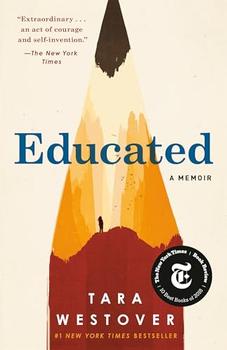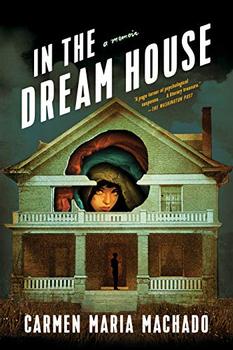Summary | Excerpt | Reading Guide | Reviews | Beyond the book | Read-Alikes | Genres & Themes | Author Bio

Witty, acute, fierce, and celebratory, Why Be Happy When You Could Be Normal? is a tough-minded search for belonging, for love, identity, home, and a mother.
Jeanette Winterson's novels have established her as a major figure in world literature. She has written some of the most admired books of the past few decades, including her internationally bestselling first novel, Oranges Are Not the Only Fruit, the story of a young girl adopted by Pentecostal parents that is now often required reading in contemporary fiction.
Why Be Happy When You Could Be Normal? is a memoir about a life's work to find happiness. It's a book full of stories: about a girl locked out of her home, sitting on the doorstep all night; about a religious zealot disguised as a mother who has two sets of false teeth and a revolver in the dresser, waiting for Armageddon; about growing up in an north England industrial town now changed beyond recognition; about the Universe as Cosmic Dustbin.
It is the story of how a painful past that Jeanette thought she'd written over and repainted rose to haunt her, sending her on a journey into madness and out again, in search of her biological mother.
Witty, acute, fierce, and celebratory, Why Be Happy When You Could Be Normal? is a tough-minded search for belonging, for love, identity, home, and a mother.
The essence of Winterson's own tenuous life-story is mimicked in the structure of her memoir, a jumble of hazy pieces coalescing into a mind, a self. What felt unformed and gangly in the first half becomes svelt and athletic; what was meandering becomes as sure and steady as a freight train.... Winterson offers a reader much more than the satisfaction of voyeuristic curiosity that marks so many train-wreck memoirs; this is a memoir about how we deal with our lot in life. Not how we can endure it, but how we might meet it, how we begin a dialogue with it, how we become who we are when we are done being our past...continued
Full Review
(1035 words)
This review is available to non-members for a limited time. For full access,
become a member today.
(Reviewed by Lucia Silva).
In a passage on suicide, Winterson remarks that "when natural gas was introduced in the 1960's, the British suicide rate fell by one-third." I thought that perhaps she was using some creative math for dramatic effect, but a little research revealed that she wasn't exaggerating at all. Here's a summary of the way things were in Great Britain before the introduction of natural gas, from the New York Times:
For generations, the people of Britain heated their homes and fueled their stoves with coal gas. While plentiful and cheap, coal-derived gas could also be deadly; in its unburned form, it released very high levels of carbon monoxide, and an open valve or a leak in a closed space could induce asphyxiation in a matter of minutes. This ...
This "beyond the book" feature is available to non-members for a limited time. Join today for full access.

If you liked Why Be Happy When You Could Be Normal?, try these:

by Tara Westover
Published 2022
Winner of the 2018 BookBrowse Nonfiction Award
An unforgettable memoir about a young girl who, kept out of school, leaves her survivalist family and goes on to earn a PhD from Cambridge University.

by Carmen Maria Machado
Published 2020
A revolutionary memoir about domestic abuse by the award-winning author of Her Body and Other Parties.